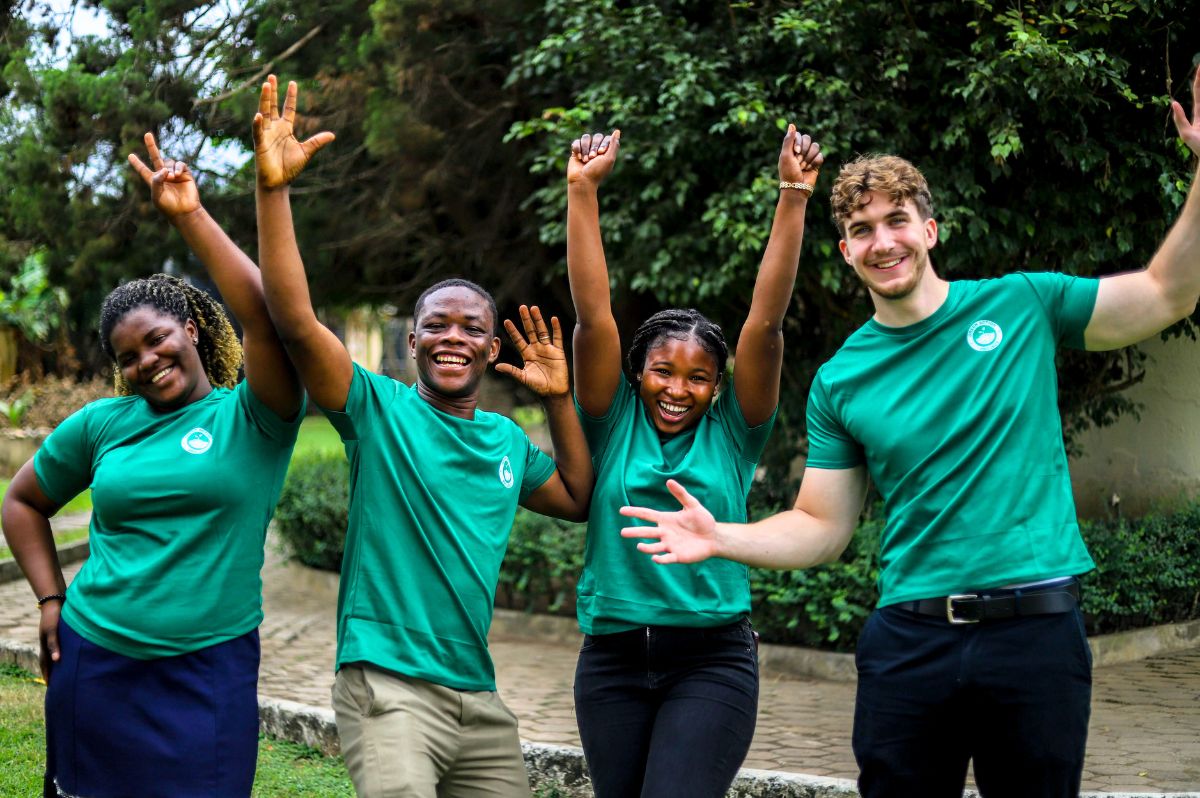Ghana's Green Revolution: Youth Driving Climate Action
Overview
In what many are calling a turning point in Ghana’s fight against environmental degradation, a youth-led movement known as "Green Tomorrow" is gaining national momentum. Spearheaded by university students, climate activists, and community volunteers, the initiative has mobilized over 45,000 young people to participate in coordinated reforestation projects, waste cleanup campaigns, and educational outreach across multiple regions.
Since its inception in early 2024, Green Tomorrow has expanded rapidly from Accra to Kumasi, Takoradi, Sunyani, Tamale, and beyond. The campaign's mantra, "Own the Earth You Inherit", has become a common chant at clean-up rallies and town hall meetings, resonating with both urban dwellers and rural communities. Backed by modest funding from local NGOs and a growing network of online supporters, the movement is not only changing physical landscapes but also public attitudes toward sustainability.
Key Successes
- Tree planting: Over 300,000 indigenous tree seedlings such as mahogany, teak, and ofram have been planted across degraded lands, including sections of the Atewa Range and coastal zones prone to erosion. The group aims to surpass one million trees by 2026.
- Plastic reduction: Through part
cleanup campaigns, and educational outreach across multiple regions.
Since its inception in early 2024, Green Tomorrow has expanded rapidly from Accra to Kumasi, Takoradi, Sunyani, Tamale, and beyond. The campaign's mantra, "Own the Earth You Inherit", has become a common chant at clean-up rallies and town hall meetings, resonating with both urban dwellers and rural communities. Backed by modest funding from local NGOs and a growing network of online supporters, the movement is not only changing physical landscapes but also public attitudes toward sustainability.
Key Successes
- Tree planting: Over 300,000 indigenous tree seedlings such as mahogany, teak, and ofram have been planted across degraded lands, including sections of the Atewa Range and coastal zones prone to erosion. The group aims to surpass one million trees by 2026.
- Plastic reduction: Through partnerships with beach resorts, markets, and schools, the initiative has removed an estimated 220 tons of plastic waste from water bodies and major cities. Volunteers conduct weekly clean-ups in hotspots like Labadi Beach and the Korle Lagoon.
- School engagement: In collaboration with the Ghana Education Service, Green Tomorrow has introduced environmental clubs in over 400 basic and secondary schools. These clubs organize tree planting ceremonies, essay competitions, and monthly “Green Days” where students lead waste audits and mini conservation projects.
- Digital Awareness: The campaign's viral hashtag
#GreenTomorrowGH has reached over 1.2 million impressions across X (Twitter), TikTok, and Instagram, featuring transformation reels of before-and-after cleanups, student eco-debates, and interviews with local leaders.
Voices from the Ground
“We’re not just planting trees — we’re planting a mindset,” says Serwaa Abena, a 22-year-old environmental science student and team lead for the Ashanti Region. “This is about building a Ghana where development and nature coexist.”
Kwabena Mensah, a fisherman from Jamestown, adds, “Since they started the weekly cleanups at the beach, the smell has reduced, and tourists are returning. These young people are giving us hope.”
Government & Institutional Involvement
In response to Green Tomorrow’s growing impact, the Ministry of Environment, Science, Technology and Innovation (MESTI) has begun exploratory talks with movement leaders to integrate their community models into national environmental policy. Additionally, the Forestry Commission has committed to donating 100,000 seedlings annually and providing technical training in tree nursery management.
Educational institutions like the University of Ghana and Kwame Nkrumah University of Science and Technology (KNUST) have also pledged academic support in the form of research partnerships, internships, and eco-innovation grants to further develop the movement’s structure and effectiveness.
Challenges Faced
Despite its success, Green Tomorrow is not without hurdles. A lack of consistent funding, inadequate access to tools and gloves, and difficulties transporting seedlings to remote areas have slowed progress in some districts. Moreover, climate activists face bureaucratic bottlenecks in gaining permission for certain public cleanups and land rehabilitation zones.
“The will is there,” notes Felix Tetteh, a Green Tomorrow logistics officer. “But we need better coordination with local assemblies and private sponsors. We’ve had seedlings dry out because we couldn’t get water tanks delivered on time.”
Looking Ahead
The movement has announced plans to introduce a “Green Youth Fellowship” — a six-month training program that will equip 200 young leaders each year with the skills to launch sustainability projects in their communities. Organizers also intend to present a petition in Parliament seeking legislation that bans single-use plastics and mandates environmental curriculum in all public schools by 2026.
Long-term visions include developing community forests, establishing composting hubs in every region, and creating a youth-led Environmental Advisory Council that reports quarterly on policy gaps and progress.
As Ghana continues to grapple with urbanization and climate change, initiatives like Green Tomorrow may be the grassroots spark needed to ignite a national transformation. If current momentum continues, this youth-driven revolution could redefine the country’s ecological future—one sapling at a time.
Related Topics:
#Ghana
#Youth
#Green Revolution
#Climate


